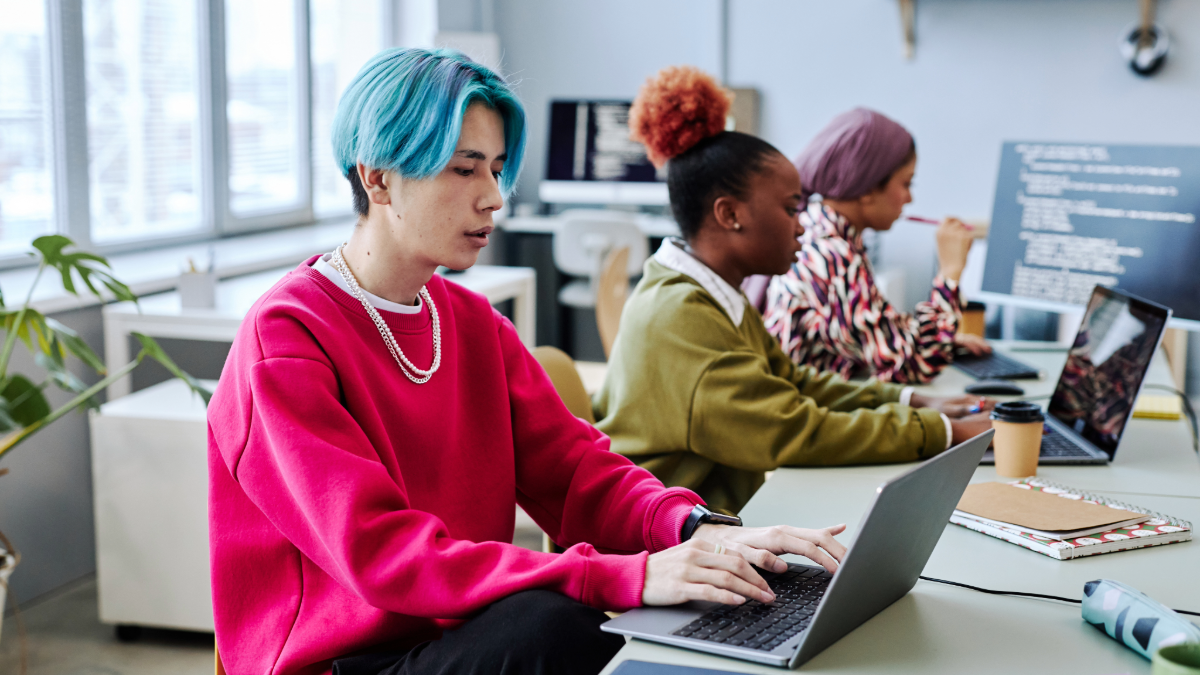Albert Einstein was one of the smartest and most productive scientists of all time. But he was also stubborn, refusing to believe scientific evidence that didn’t jive with his beliefs. He refuted black holes even though his own work led to their discovery. He refused to accept the Big Bang theory because it contradicted his certainty that the universe is static. And he scoffed at gravitational waves, even though the theories emerged from a paper he wrote himself.
And he’s not alone in being blinded by his own assumptions. Most of us spend our life’s work becoming experts at something. And that’s good, but also dangerous. The more expert we are, the more we become entrenched in our own mental models when faced with facts that contradict them. One sobering study revealed that 70% of psychiatrists actively worked to confirm a wrong diagnosis rather than consider a new one.
And the smarter we are, the more at risk we are for this confirmation bias. In the fight for new ideas, you are your own worst enemy, losing the flexibility to entertain breakthrough thinking. These days, we need that mental flexibility more than ever. Increased polarization, social upheaval, rapid technological change and curve balls in the way we work throw a major wrench into our collective ability to make sense of the world. Yesterday’s experiences don’t give us adequate clues to meet today’s challenges.
Your best weapon is an open mind—a willingness to challenge your assumptions and be open to different ways of seeing and understanding the world. As Yoda famously reminds us, it means unlearning what you already know to make space for something new. Here are three ways to do that and future proof your brain to grow and thrive.
- Adopt a beginner’s mind.
The great Zen teacher Suzuki Roshi explained “In the beginner’s mind there are many possibilities, but in the expert’s mind there are few.” When we first set out to learn something truly new, our minds are fresh and curious, unsullied by preconceived ideas and contrary opinions. But it’s hard to retain the beginner’s mind. There’s a reason for the proverb “a little knowledge is a dangerous thing.” When we know something—even just a little something—we tend to believe we know more than we really do. A flawed belief that we are experts precludes us from staying open to possibilities.
There’s a delicious example of this. In 2018, a doctoral student at Harvard was studying the connection between dairy and chronic disease. Much to his surprise (and the dismay of his advisors), he found overwhelming evidence that eating half a cup of ice cream every day was associated with a lower risk of heart problems in diabetics. On top of that, he discovered that he wasn't the first to identify this connection. Twenty years earlier, scientists first observed the outsized benefit of ice cream. But ice cream as disease prevention plainly doesn't fit the dogma of healthy eating. So scores of researchers explained it away, dismissing it rather than investigating further.
To prevent these blind spots in your work, actively adopt a beginner's mind. When you don't know what's impossible, you are unstoppable. Unfettered by your own biases, you can identify and explore connections others may not see and surface new explanations for vexing problems. And while the challenges you face may not be solved with a cup of rocky road, the path forward is smoother when you stay curious and fight the temptation to discount answers that surprise you. - Surround yourself with people who don't think like you.
The echo chamber isn’t only on the internet—it’s alive and well in the real world. We pick the channels we watch and listen to, the news we read, and the social media accounts we follow—much of it aligning with what we already believe. Most of us live near people who look and think like us. As a result we’re losing our ability to disagree respectfully and productively.
Our brains are very happy on auto-pilot, interpreting the world and new inputs in ways that fit what we already know. In fact, this bias is so powerful that research shows we experience a rush of dopamine—pure pleasure—when we learn something that supports our beliefs. With torrents of information flowing past us at breakneck speed, it's easier to return to the sources we trust instead of seeking out diverse perspectives. But relying consistently on a narrow set of inputs erodes our critical thinking skills, damaging our ability to discern truth from bunk. As a result, we become highly susceptible to misinformation.
To escape the echo chamber, push yourself into new spaces and look for alternative perspectives. Consider adopting this new habit. When faced with a decision, slow down. Ask yourself one more question, probing just a little deeper on the issue you're trying to resolve. Consider one more thought: seek out an additional piece of information that doesn't confirm what you've already concluded. And listen to one more voice, specifically engaging someone who doesn't always agree with you. The “one more” habit ensures that you look beyond the world you know to new and different possibilities. - Extend your social connections, especially at work.
Keeping yourself open to new ideas at work is hard. Often you are head down, working alone, racing to get things done. It’s tough to find the time (and, in hybrid environments, the space) to make new friends. But the cost of disconnection is high. In my work, I’ve seen people learn the hard way that working alone does not always yield the best results.
In a large research university, we gathered a diverse group of staff and faculty for facilitated discussions of short stories. A seasoned management professor was so stunned to hear such a wide array of perspectives on one particular story that at first he wasn’t sure he’d read the same one. In the face of so many rich insights from his peers, including many ideas he hadn’t thought of, he began to question the reliability of the research he routinely conducted alone. If he missed so many angles in a story, he reasoned, how many does he miss in his work?
Your peers are not only a rich source of new ideas, they can help you guard against the potential myopia of working alone. Our need for belonging creates a powerful urge to reconsider opinions in the face of new information provided in social contexts. Social relationships help us capitalize on intersections. The spaces between you and your peers hold vast possibilities—rich combinations of ideas, perspectives, experiences and expertise—that no one can conceive alone.
If your organization doesn’t create opportunities for you to get to know a wide array of people, take it upon yourself. Ask a colleague to lunch, or set up a video call to shoot the breeze with someone new. Compare notes on a movie, a book, or the news. Invite a broader set of colleagues to your next problem solving conversation. In the new world of hybrid work, this takes extra effort. But the payoff is real: the connections you make will help you be more collaborative, inclusive and productive.
Einstein’s mentor and teacher, German physicist Max Planck, once said, “Science advances one funeral at a time.” But especially in today’s fast-moving world, we can’t afford to wait for one generation to die to advance new ideas.
To avoid being blinded by your own beliefs, honor your expertise but don’t rest in it. Treat it as a foundation to constantly learn more. A beginner’s mind, diverse influences and a broader social network will help you think bigger thoughts, grow your insights and shape the future of your work—one new insight at a time.
First published on Forbes.com.








